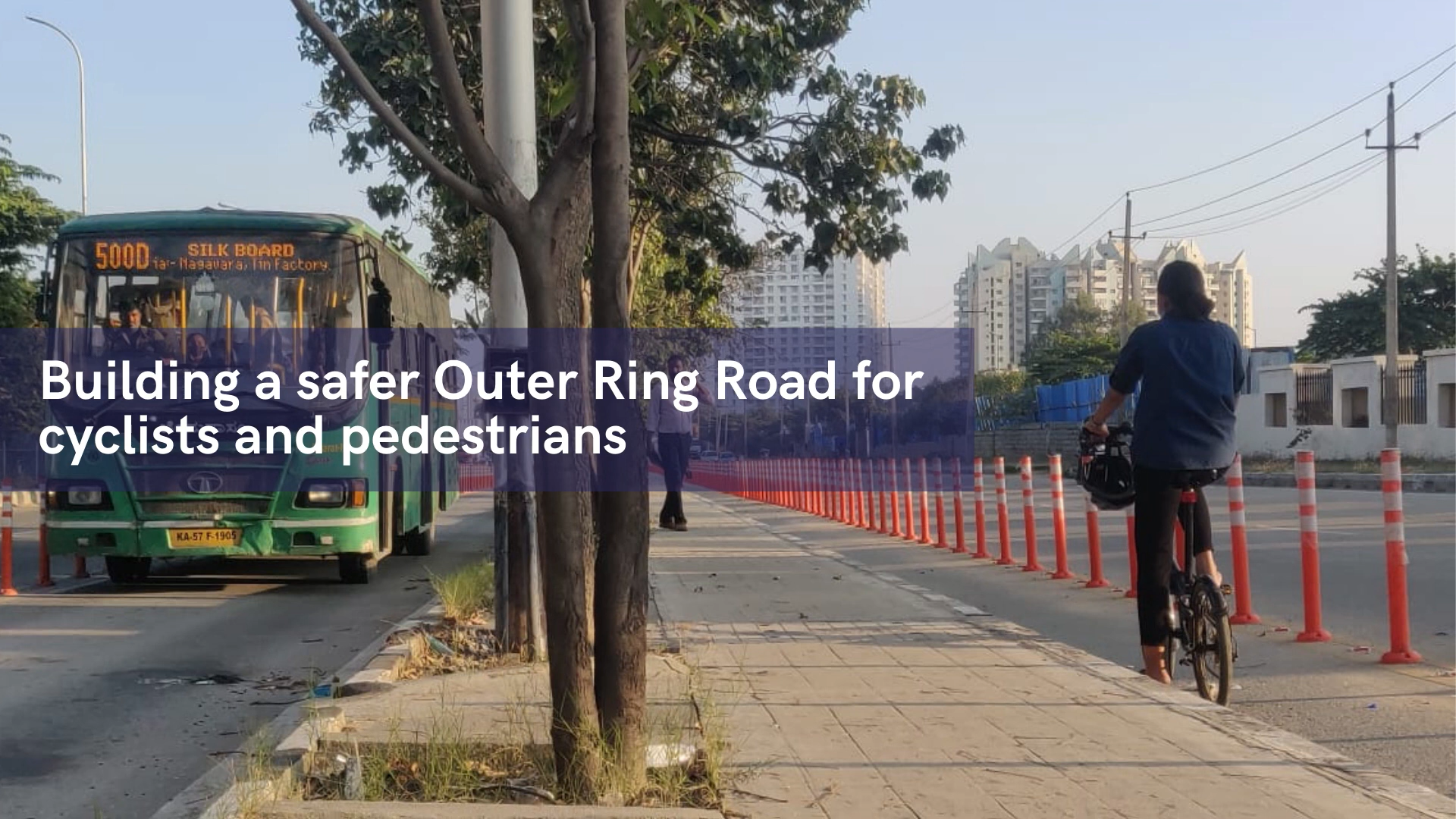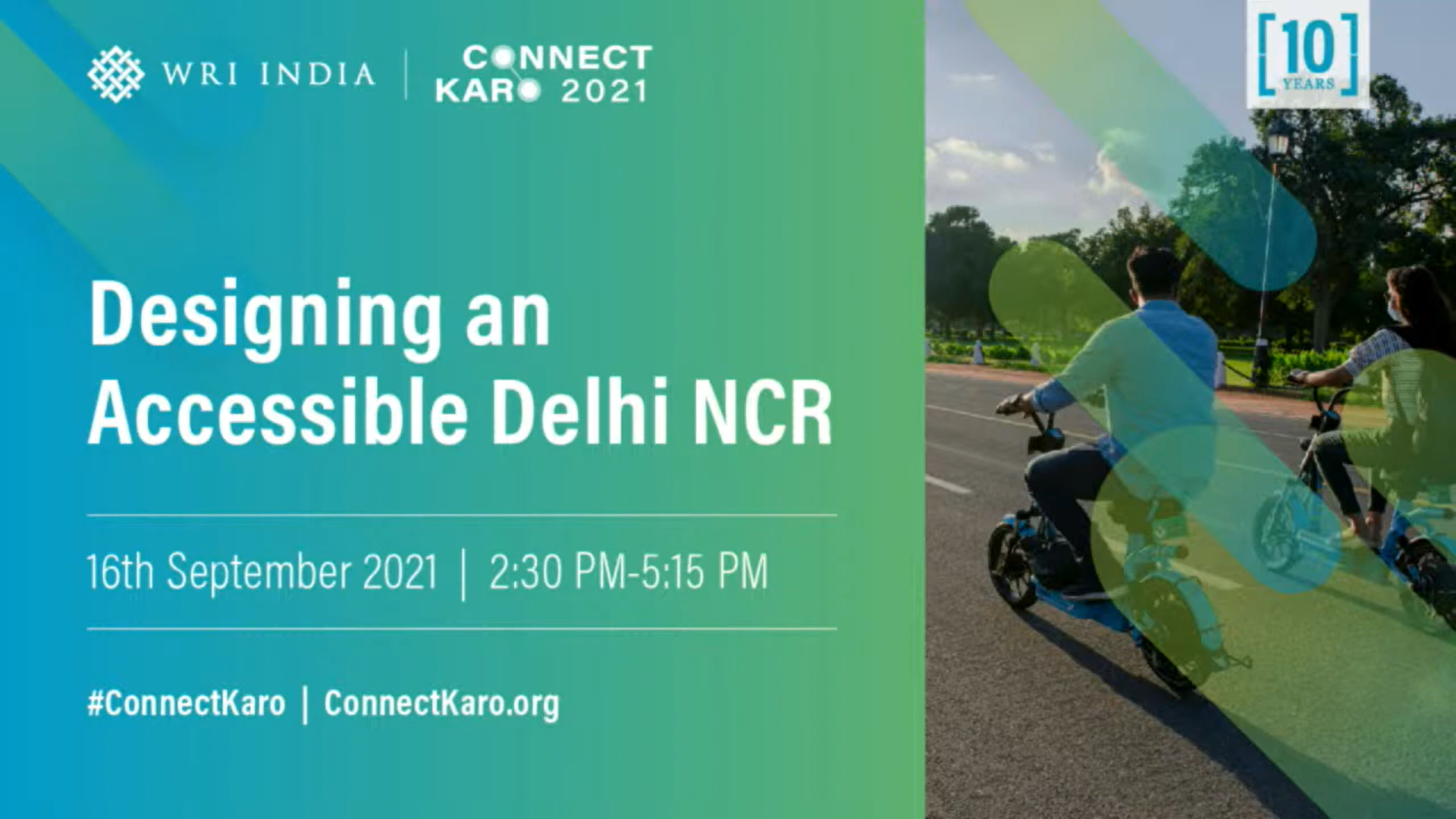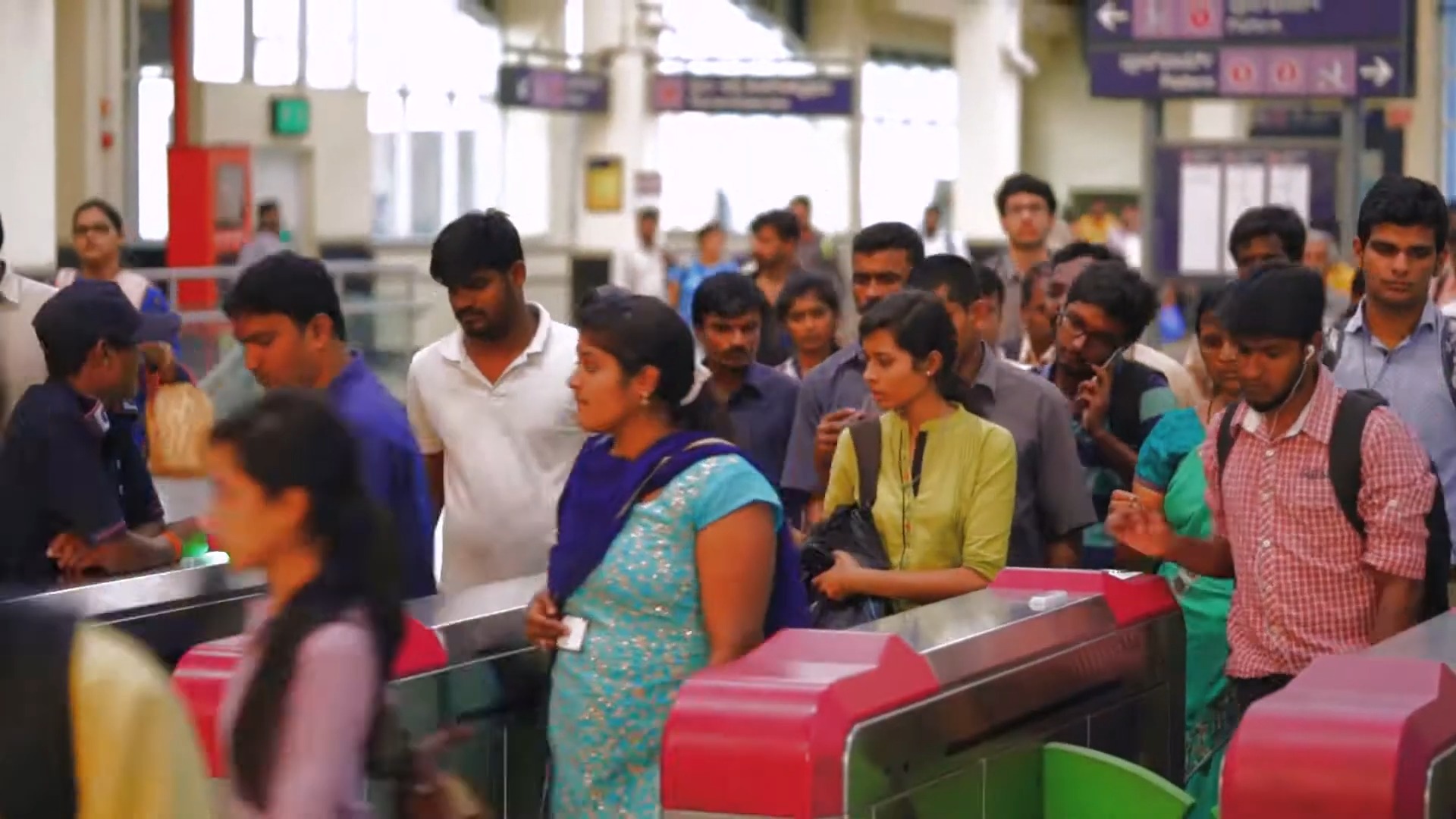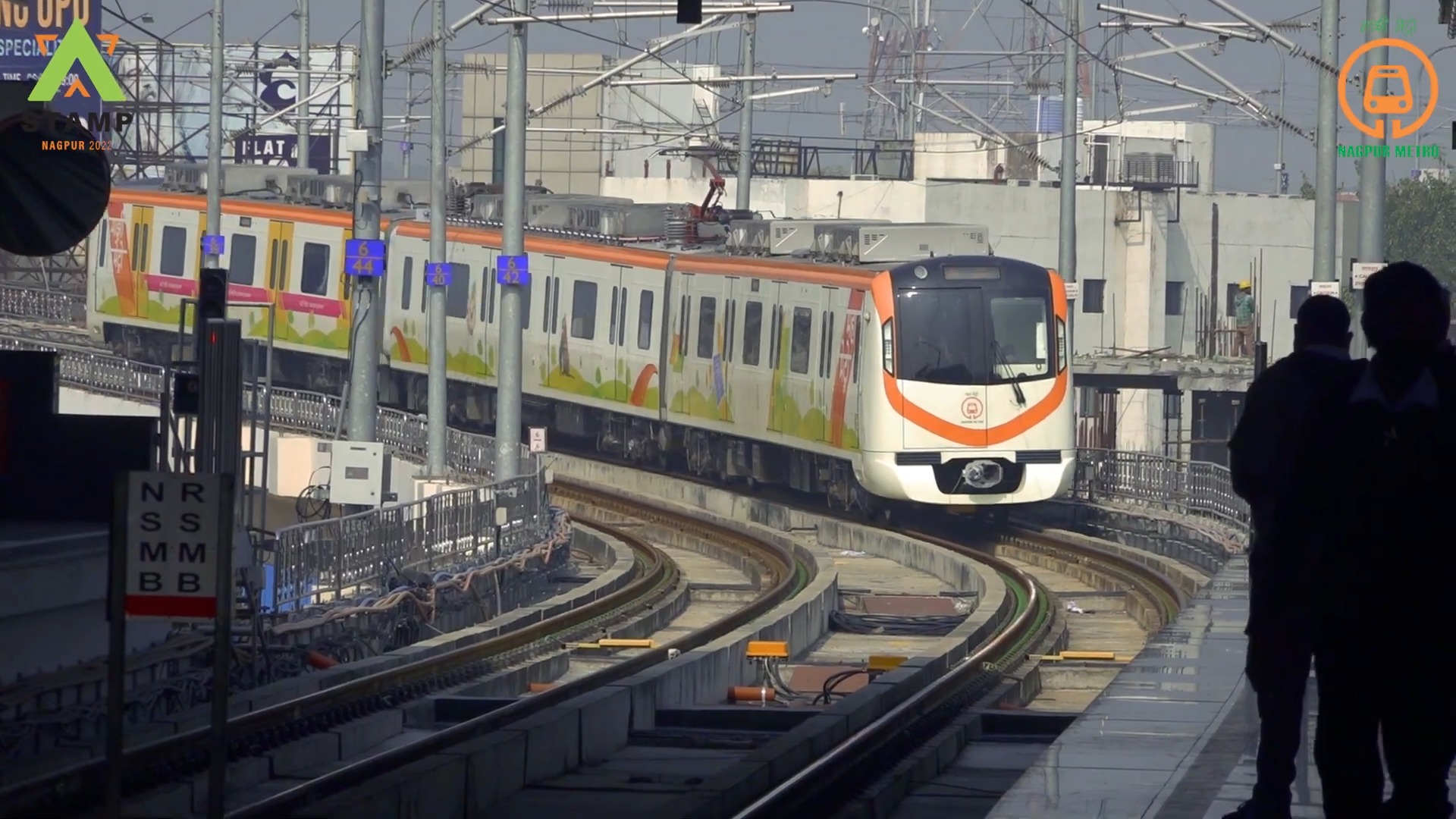Integrated Transport
Efficient, integrated transport systems, made available to all citizens irrespective of gender, socio-economic status and physical disabilities, will ensure better access to job opportunities and essential services. Unfortunately, Indian urban infrastructure has not been able to keep pace with the demand, resulting in congestion, wasted fuel, harmful transport emissions and other concerns that impact our health and well-being.
In India, transport forms about 13.5% of all emissions— which amounts to 0.31 gigatonnes of CO2 per year. That is equivalent to the amount of carbon dioxide emitted while charging 3.8 trillion smartphones.
Solving these challenges calls for concentrated action, by individuals, public institutions, private companies and local governments. The focus needs to shift to integrating transport services to make it affordable and accessible by combining public transit, shared transportation, walking and cycling.
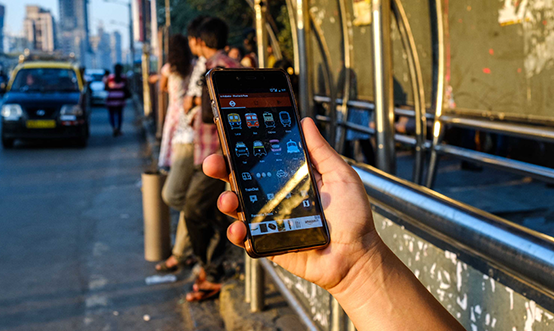
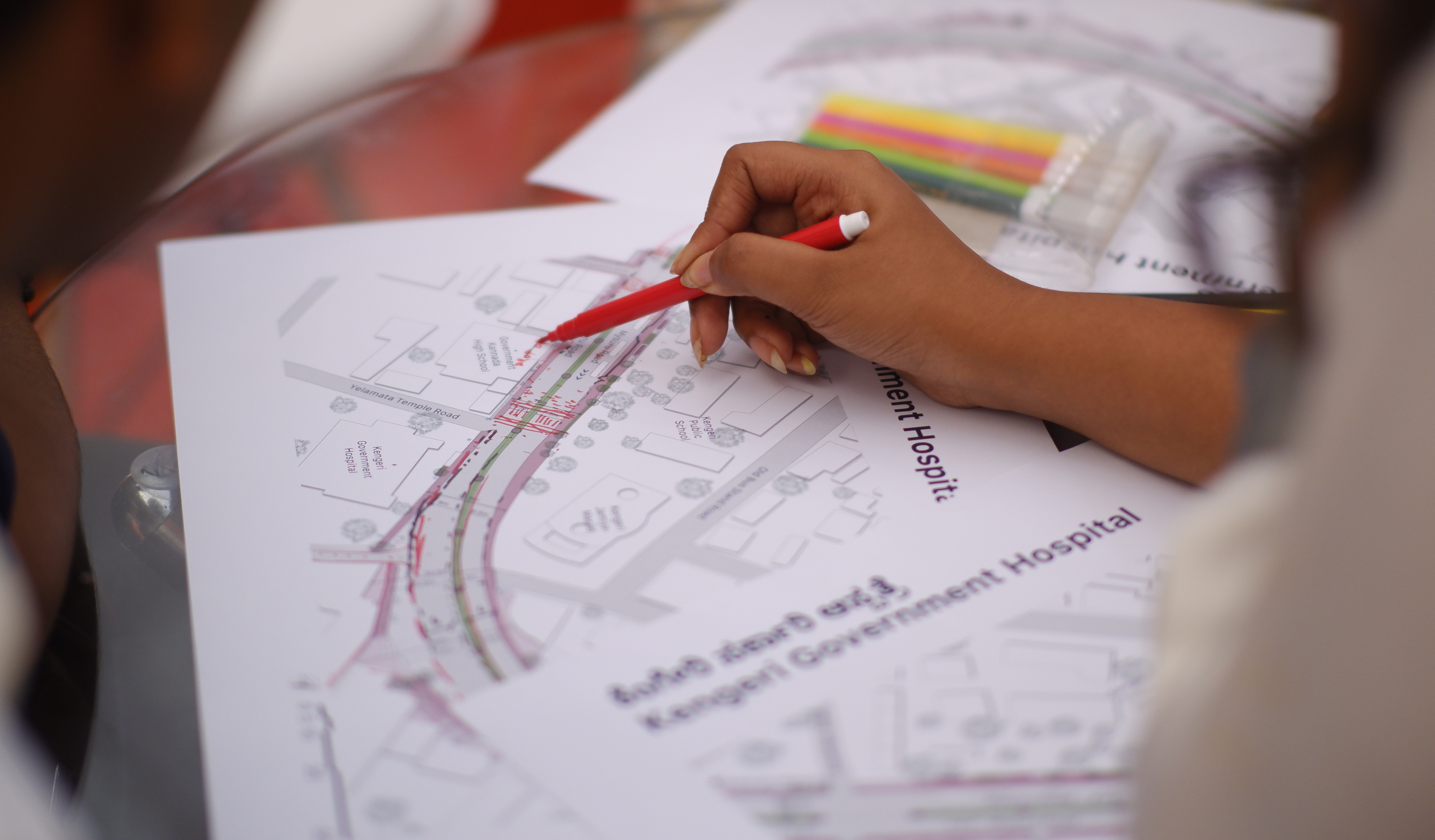
EquiMobility Champions
Entries are now open for the EquiMobility Champions Program, a recognition and capacity-building initiative by WRI India that aims to support local leaders in developing more gender-responsive urban mobility systems. A 10-month initiative, the program will support a selected cohort of EquiMobility Champions in training, mentorship, and networking opportunities. We invite early- to mid-career professionals, in any field related to urban transportation, planning or gender studies, to apply for the program and enhance their impact on promoting more gender-responsive mobility in Indian cities.
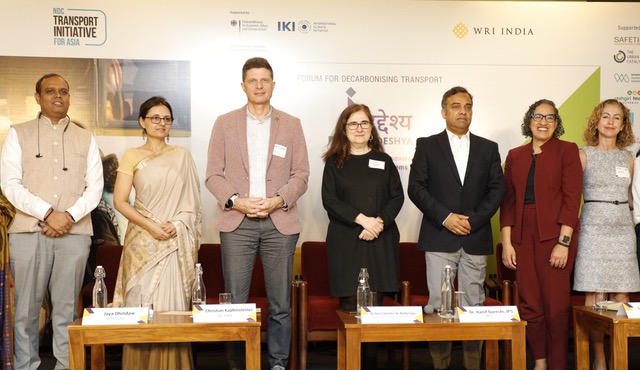
Uddeshya: Towards Gender-Responsive Urban Mobility Systems
Moving towards a low-carbon future requires an accelerated decarbonization of the transport sector. Uddeshya 2024 spotlights inclusive mobility as a powerful catalyst – recognizing diverse mobility needs and fostering accessibility for all genders and communities. This approach is key to mitigating the environmental impact of transport systems while ensuring social equity. Organized by WRI India, under the aegis of the Forum for Decarbonising Transport (a NITI Aayog-led platform for enabling more ambitious and inclusive transport decarbonization action), the second edition of Uddeshya included discussions and an exhibition showcasing equitable mobility initiatives and an award ceremony to recognise individuals and organizations contributing to further gender-responsive mobility.
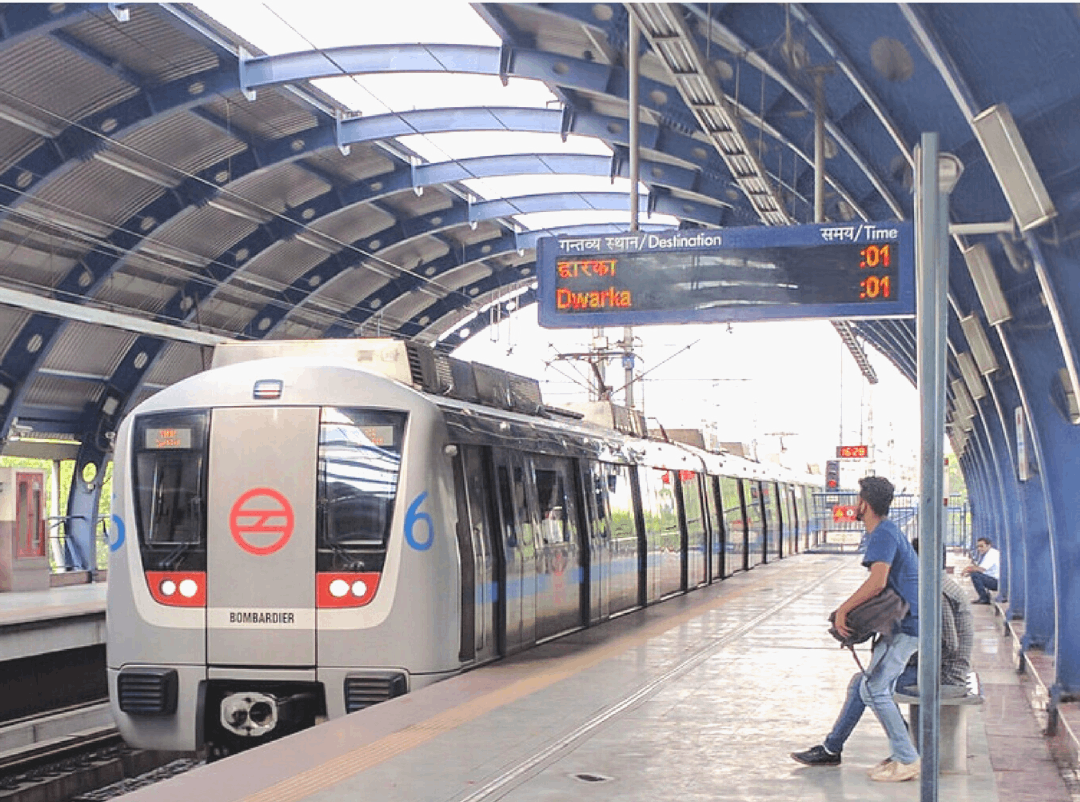
Pan-India Station Access and Mobility Program (STAMP)
Indian cities are investing in over 5,000 km of urban metro rail infrastructure by 2047. However, poor accessibility and lack of last-mile options sees fewer commuters using the metro systems than expected. To bridge the gap between the metro and last-mile services, WRI India, in collaboration with the Toyota Mobility Foundation, launched the Station Access and Mobility Program (STAMP) in 2017.
STAMP is a multi-year, multi-city project that combines research with piloting innovative solutions at stations. Launched in Bengaluru, STAMP has since expanded to Hyderabad, Kochi, Mumbai, Pune and Nagpur. The program brings together diverse stakeholders, from metro agencies to startups, to implement solutions in and around metro stations.
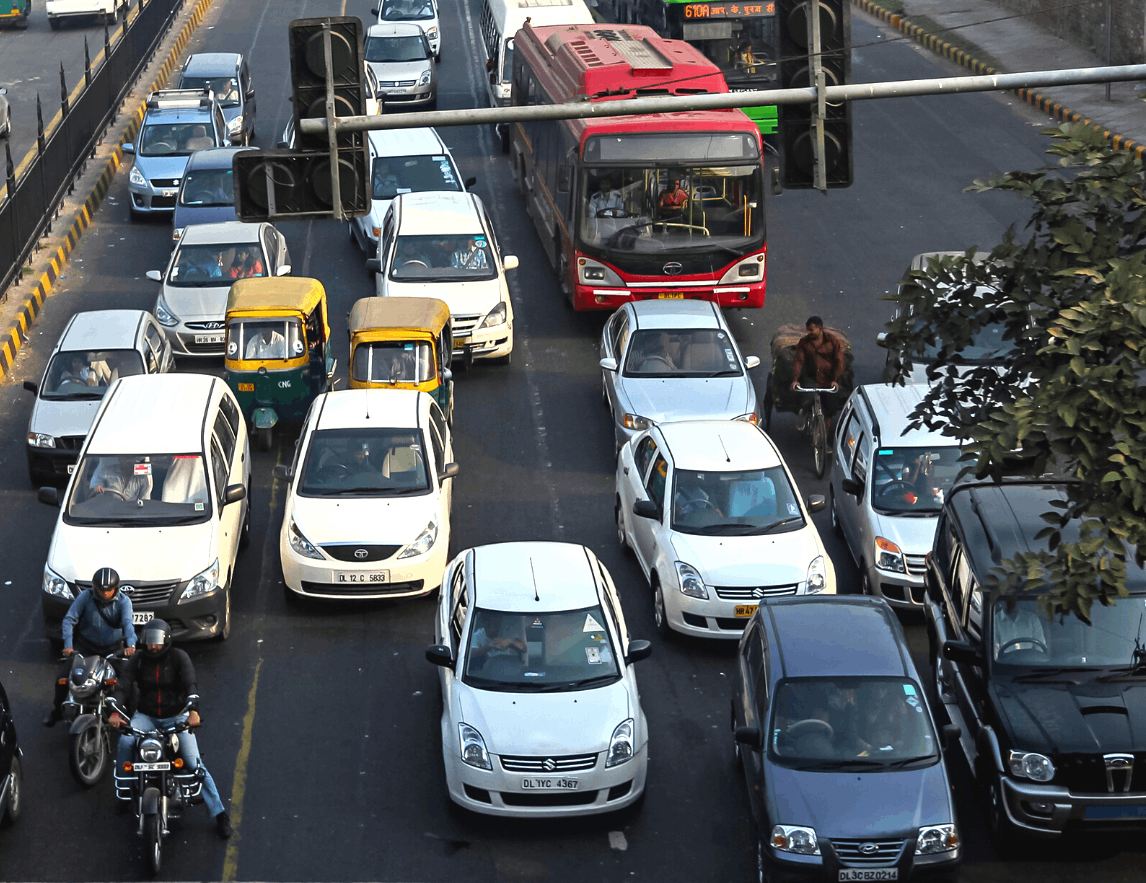
Decarbonising Transport in India
Transport is the third-most CO2 emitting sector in India, and within that, road transport contributes to more than 90% of total CO2 emissions. Emissions are expected to increase further over the next decade making decarbonisation of transport critical to climate action.
As part of the NDC Transport Initiative for Asia (NDC-TIA), WRI India is working with NITI Aayog and six partner organisations to develop regulatory frameworks, and to strengthen policies, to support sustainable mobility deployment to decarbonise India’s transport sector.
In August 2021, WRI India along with NITI Aayog launched the ‘Forum for Decarbonising Transport’. The Forum brings together mobility and energy sector stakeholders to facilitates peer-to-peer learning and technical knowledge sharing on electric mobility financing, skill development and battery swapping among others.
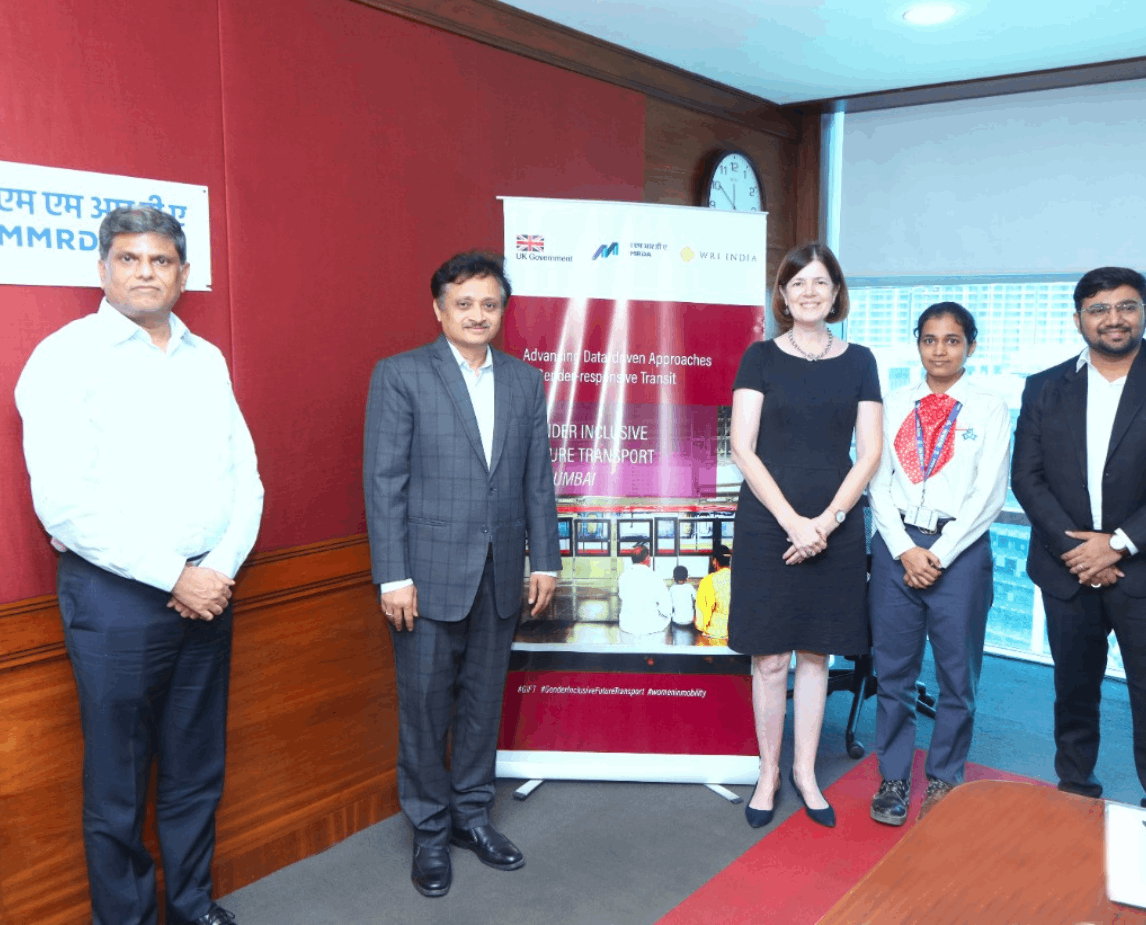
Towards Gender Inclusive Future Transport
Women’s travel patterns differ from men and limited mobility impacts access to basic services and opportunities. Addressing this difference can go a long way in making transit networks more inclusive.
In conjunction with the UK government and the Mumbai Metropolitan Region Development Authority (MMRDA), WRI India launched Mumbai Metro’s first-ever ‘Gender Inclusive Future Transport’ (GIFT) initiative.
The initiative focused on the travel patterns of men and women along Mumbai Metro-1 (Versova-Andheri-Ghatkopar) and the findings were released on May 2, 2022, in the presence of the Hon’ble Metropolitan Commissioner and dignitaries from the British Deputy High Commission. MMRDA is India’s first metro agency to acknowledge the gender-led variances in perspectives towards safety, travel patterns and decision-making.
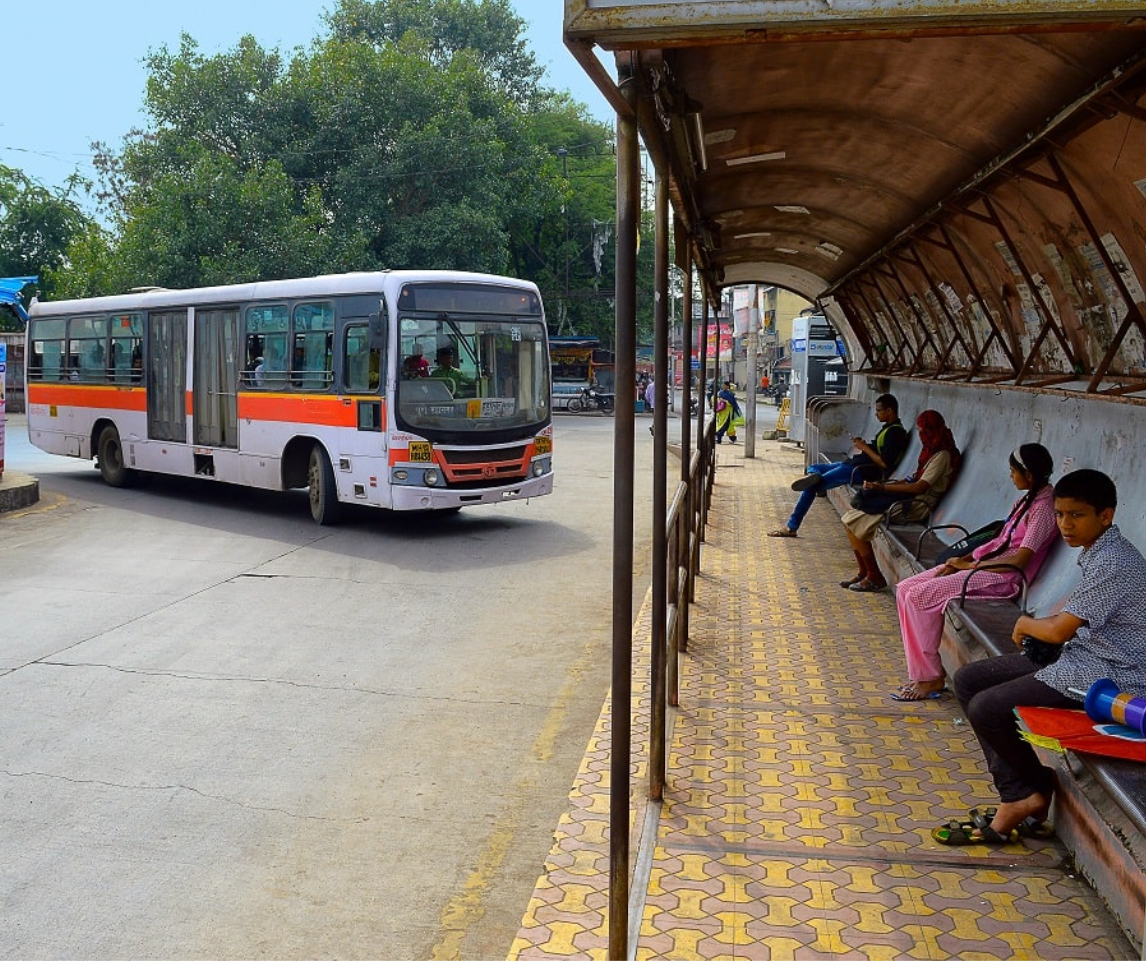
Augmenting Bus-based Public Transport Systems
Public Transport is the backbone of urban mobility in India but inefficient planning and lack of finances has been impacting both ridership and revenue. WRI India, through its ‘Bus Karo’ program, aims to engage State Transport Undertakings (STUs) and other stakeholders to deliberate technical issues that hinder bus systems, build capacity and foster peer-to-peer learning. The program has three components —
-
Talking Transit: A workshop series that convenes public transport agencies, to discuss various aspects of bus services, along with providing capacity building training.
-
Mentoring Transit: Assisting public transport agencies in implementing pilot projects that seek to improve bus services through performance monitoring and service optimization.
-
Learning Transit: Develops and disseminates resources documenting Indian and International best practices in bus operations.
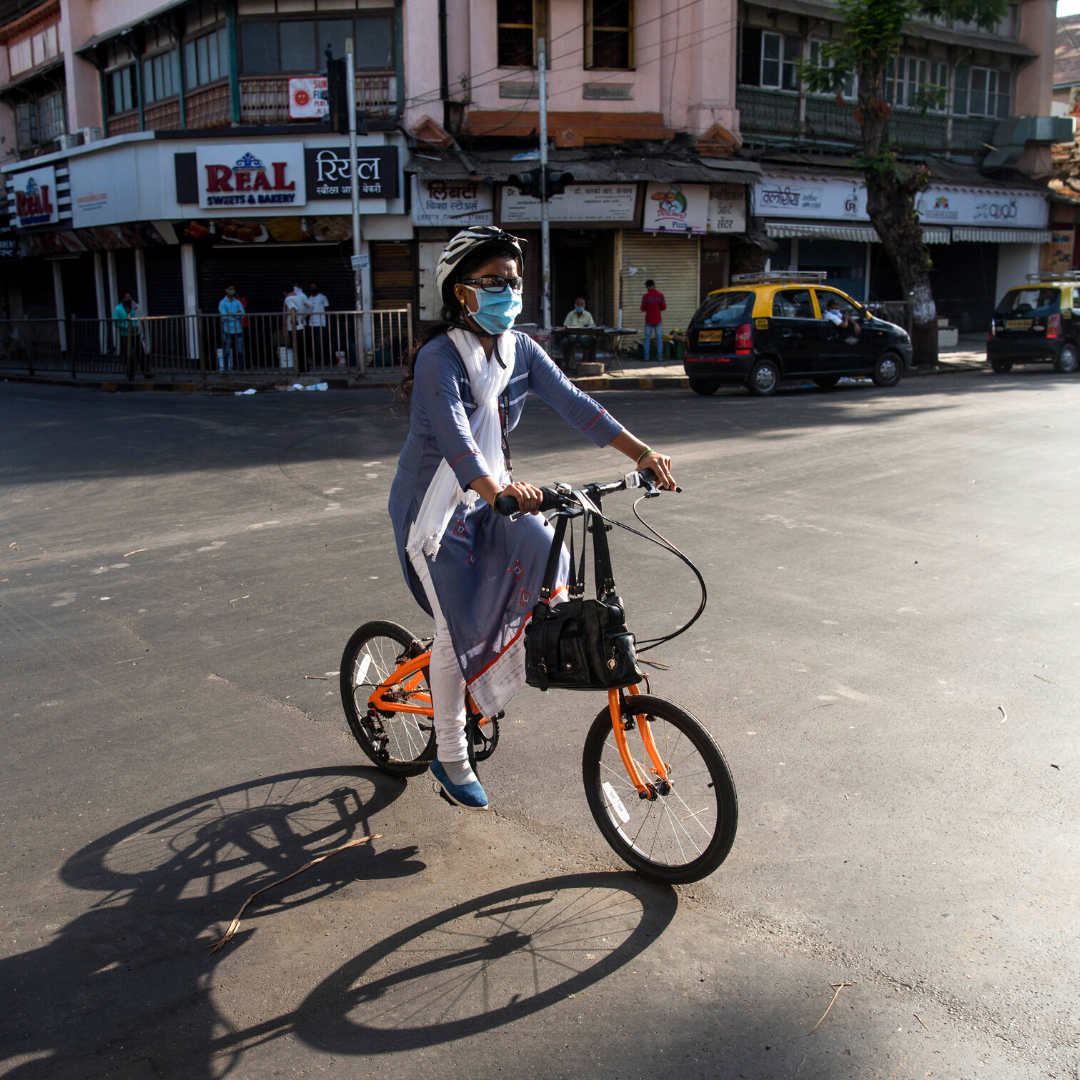
Accelerating Non-Motorised Transport
Non-motorized transport, such as walking and cycling, is one of the most environment friendly and cost-effective modes of travel available. While middle-class urban Indians see cycling as a form of exercise, the fact is 55% of Indian households have a cycle largely because a sizeable number of people, especially from the informal sector, regard cycling as the only affordable and feasible form of commute.
WRI India has been working actively to promote safe walking and cycling in cities, primarily through the design and planning of safe cycling infrastructure which include -
- The Streets for All program, which is a sustained movement towards creating streets for people rather than vehicles.
- Supporting 15 Indian cities in the planning and implementation of public bicycle sharing (PBS) systems and developing associated walking and cycling infrastructure.
- Initiating a Bicycle Mayor Engagement program in 2020 and collaborating with Bicycle Mayors from 5 cities (Jaipur, Kolkata, Pimpri Chinchwad, Ranchi and Guwahati) to plan and design safe cycling infrastructure, build capacity, and shape programs to promote cycling.
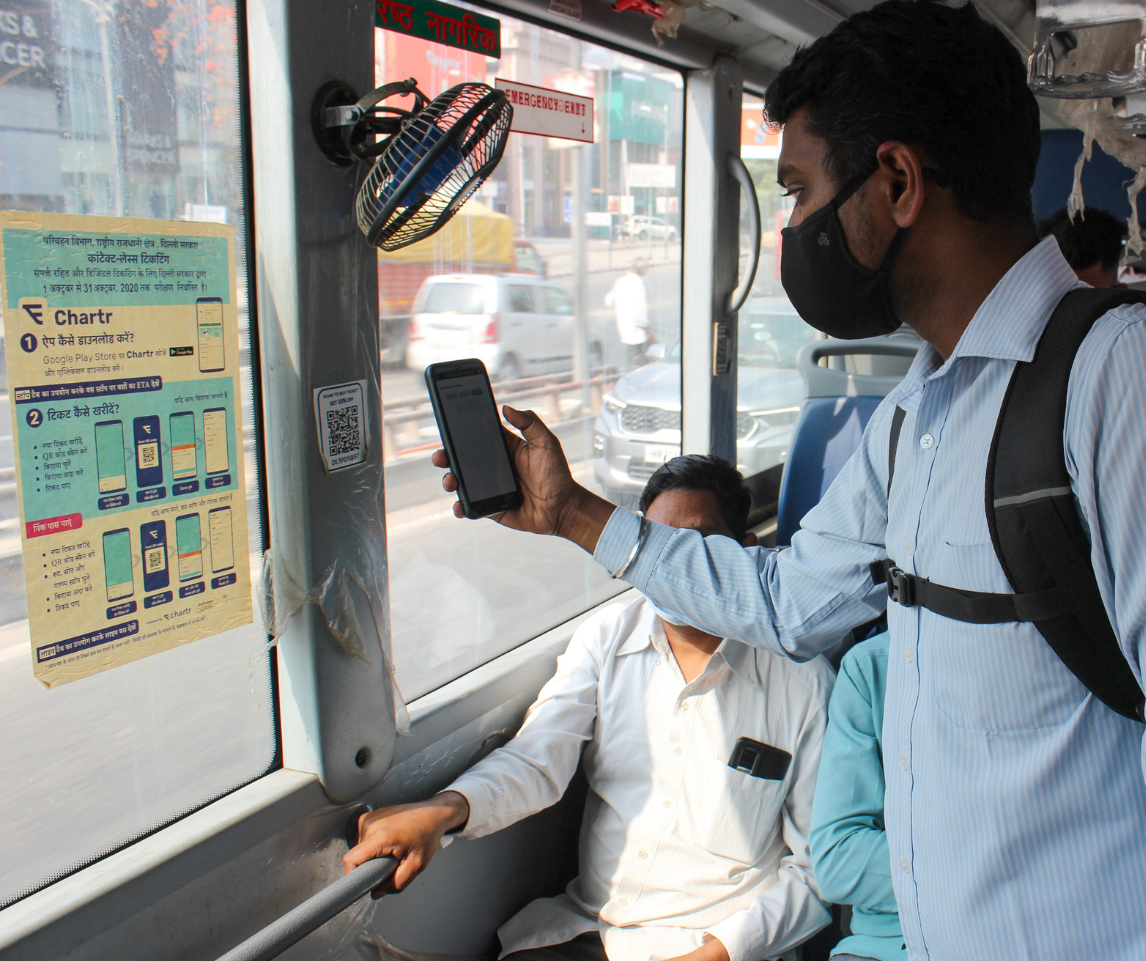
Digitizing the Ticketing Experience
In 2020, the Delhi Government undertook an initiative to implement contactless mobile ticketing in Delhi Transport Corporation (DTC) and cluster buses to improve the ticketing experience. WRI India worked with the state government to create the ‘Chartr app’, a digital ticketing solution.
WRI India experts helped conceptualize the app architecture, supported field testing and conducted in-person opinion surveys. The QR code-based ticketing app was used to purchase more than 300,000 paperless bus tickets in its first 12 weeks of operation and was downloaded by nearly 800,000 customers during its first year.
The app is currently being used across 650 Delhi bus routes, providing added safety and convenience to well over a million passengers daily. Better-quality trip data, reduction in revenue leakage, paperless transaction, and initiating a shift towards a cashless digital economy are proving to be some of the biggest drives of the Chartr app.

